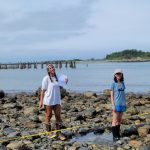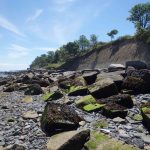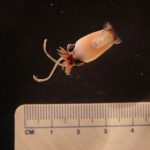Teaching

Fall semester: SMS 491: Coastal Marine Ecology
Credits: 4-credit undergraduate course
Location: Semester-by-the-Sea Program at the Darling Marine Center
Description: This course will explore fundamental concepts in marine ecology with an emphasis on hands-on investigation and field activities that take place in mid-coast Maine habitats surrounding the Darling Marine Center. General themes covered in the course will include biology, taxonomy, behavior, management, and conservation of coastal and marine species. In addition, students will learn how anthropogenic threats such as exploitation and climate change are impacting community composition and function through changes in species distribution, abundance, and productivity. Students will become familiar with field and laboratory-based methods and data collection techniques that characterize, measure, and track patterns in coastal biodiversity and ecological processes over space and time. Over the course of the semester, students will design projects from direct observations and field surveys and learn skills of how to analyze, interpret, and present these data through written reports and oral presentations.
Pre-requisites include one of the following: SMS 300, SMS 321, SMS 322, SMS 422 or by permission of the instructor.

Spring semester: SMS 598-004: Climate Change Impacts on Marine Resources
Credits: 1-credit graduate seminar course
Location: This class will meet in person at the Darling Marine Center and via Zoom for hybrid participation. Because this is a special topics course, students should reach out to Jodie Feero for assistance with enrolment.
Description: The science of climate change is advancing at a rapid pace, as we move from predictions to realized impacts every day. In this seminar course, students will gain a broad understanding of the current scientific consensus of how climate change is affecting coastal and marine socioecological systems. Weekly discussions will center around student-selected topics of interest from global, national, and regional climate assessment reports as well as recent peer reviewed literature. Brief lectures will introduce conceptual frameworks on climate vulnerability and climate adaptation, and provide an overview of resources for communicating, visualizing, and using climate data in research and management-relevant contexts.
 Spring semester: SMS 598-003: Basic Statistical Inference
Spring semester: SMS 598-003: Basic Statistical Inference
Credits: 3-credit graduate seminar course
Location: This class will meet in person at the Darling Marine Center and via Zoom for hybrid participation. Because this is a special topics course, students should reach out to Jodie Feero for assistance with enrolment.
This course is designed for students who are early in their statistical training and use of R. Over the course of the semester, students will become familiar with R coding by completing basic and advanced self-guided online modules. Weekly meetings will create space for a community of practice centered around peer-to-peer support for coding challenges. In addition, we will read selected papers from the literature as case study applications of corresponding statistical models. Discussions will center on study design, model interpretation, and effective communication of statistical results. Topics covered include common statistical theory, assumptions, and models used in ecological research including hypothesis testing, Analysis of Variance (ANOVA), linear regression, Generalized Linear Models (GLMs), Mixed Effects Linear Models (GLMMs), simulation, bootstrap, permutation tests, and power analysis.
